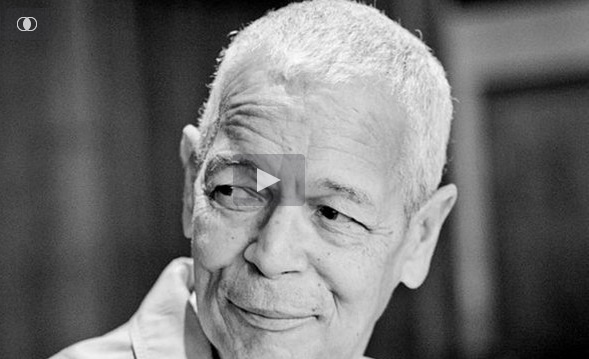FREE FLOW OF INFORMATION
An excerpt from Democracy Now by Amy Goodman
Today [August 17], in a Democracy Now! special, we remember the life of civil rights pioneer Julian Bond, who died on Saturday at the age of 75.

Video of the program
Bond first gained prominence in 1960 when he organized a series of student sit-ins while attending Morehouse College. He went on to help found SNCC, the Student Nonviolent Coordinating Committee. After the passage of the 1965 Voting Rights Act, Bond was elected as a Democrat to the Georgia House of Representatives. But members of the Legislature refused to seat him, citing his vocal opposition to the Vietnam War. Bond took the case to the Supreme Court and won. He went on to serve 20 years in the Georgia House and Senate. At the 1968 Democratic National Convention in Chicago, Julian Bond became the first African American nominated for U.S. vice president by a major political party. But he had to withdraw his name because he was just 28 years old — seven years too young to hold the second-highest elected office. Julian Bond would go on to co-found the Southern Poverty Law Center. He served as the organization’s first president from 1971 to 1979. From 1998 to 2010, he was chairman of the NAACP. We speak to Eleanor Holmes Norton, delegate to Congress representing the District of Columbia; former NAACP president Benjamin Jealous; Pulitzer Prize-winning historian Taylor Branch; and Richard Cohen, president of the Southern Poverty Law Center. “He never thought the movement was about only blacks, so he was easily able to grapple with the movement that involved women, that involved the LGBTQ community, that involved climate change,” said Norton.
In a statement, President Obama said, quote, “Julian Bond was a hero and, I’m privileged to say, a friend. Justice and equality was the mission that spanned his life. Julian Bond helped change this country for the better.”
(Thank you to Janet Hudgins, the CPNN reporter for this article.)